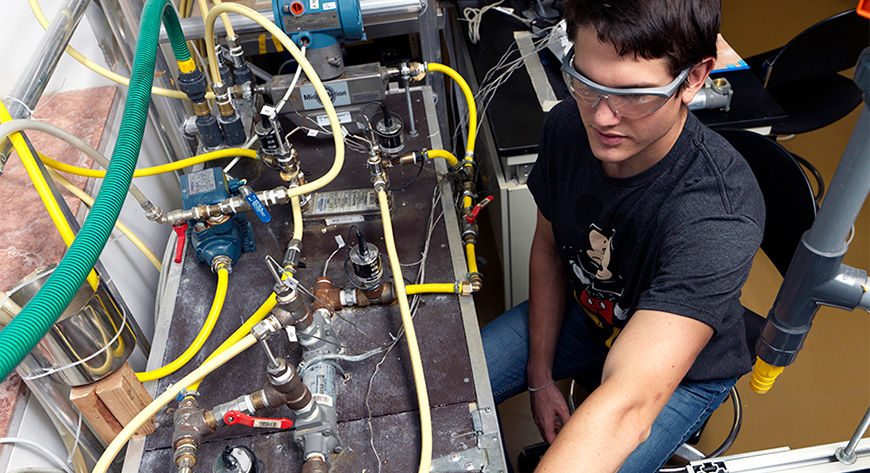
Engineering students at Texas A&M University at Qatar are building on their classroom knowledge and bringing their imagined projects to life through the Engineering Enrichment Program (EEP).
First offered in spring 2016, the program provides 26 short courses to students who want a more hands-on engineering experience to drive innovation and entrepreneurship.
The program — which just wrapped up its third cycle in mid-August — enhances Texas A&M at Qatar’s commitment to educate exemplary engineers and well-rounded leaders. EEP has three levels: Pros, Mentors and Inventers. Pros learn the skills of machining, electronics, fabrication and programming. Mentors help their fellow students learn these valuable skills while solving design problems and Inventers have the opportunity to bring their ideas to fruition — and possibly have their projects sponsored.
EEP manager Yasser Al-Hamidi said he wants the program to empower engineering students.
“These short courses are important stepping stones in your career,” Al-Hamidi said. “This recognizes you as an expert in your course, but the road doesn’t end here. We look forward to seeing you return as mentors and to continue toward certification.”
Dr. Eyad Masad, vice dean of Texas A&M at Qatar, told students that he was proud of what they’d accomplished, and their participation showed their “commitment and thirst for learning and gaining skills.” Masad encouraged them to continue in the program to train the next group of students.
That goal has been accomplished. More than 100 students have since participated and some have achieved certification. One student attained the NI Certified LabVIEW Associate Developer distinction and five of the 12 Certified SOLIDWORKS Associates in Qatar are Aggie engineers. The program came full circle last week when one of its certified students literally became the teacher.
For students, the draw is the opportunity to get certified in house. “Personally, the chance to take a SolidWorks course and future opportunities to get certified is why I wanted to be here,” said one of the participants, Maher Armoush. “It was a really good experience.”
Beyond short courses, one new aspect of the program will be involving students in international competitions like the Society of Automotive Engineers’ Formula SAE program where students will be tasked to collectively build a race car from scratch.
Masad also said he hopes these trainings will appear on future students’ transcripts as ancillary coursework.